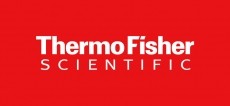New York bans mercury in vaccines
the administration of any vaccine containing more than a trace
amount of mercury to children under the age of three or pregnant
women.
Thimerosal, a preservative used in vaccines that contains 50 per cent ethyl mercury, has been used in vaccines for years as a preservative to help prevent life-threatening bacterial contamination. However, vaccine manufacturing technology has advanced in recent years, and it is no longer necessary to add preservatives containing mercury to vaccines, according to the bill's sponsor, Sen Dean Skelos.
"Childhood vaccinations have had a significant and measurable public health benefit," said Sen Skelos. "But with scientific uncertainty regarding the safety of the mercury-based preservative thimerosal to children, readily available alternatives and a consensus between the major federal health agencies that thimerosal use should be reduced or eliminated, we must err on the side of caution and end its use in New York State.
The bill has now been passed on to Governor George Pataki for signature.
Two other US states, California and Iowa, have already enacted legislation banning the use of more than a trace amount of thimerosal in vaccines. Similar legislation is pending in the states of Delaware, Florida, Maryland, Massachusetts, Minnesota, Missouri, Nevada, North Carolina, Ohio, Oregon, Pennsylvania, Rhode Island, Tennessee, Utah and Washington.
Vaccine manufacturers say that as of 2000, vaccines recommended for use in children and infants have all been available in versions that contain no ('thiomersal-free') or only trace amounts ('thiomersal preservative-free') of the compound, with the exception of some multidose vials intended for use in the developing world. This is because where several doses are taken from the same container, thiomersal offers better protection from contamination than other preservatives such as 2-phenoxy ethanol, according to the World Health Organisation.









